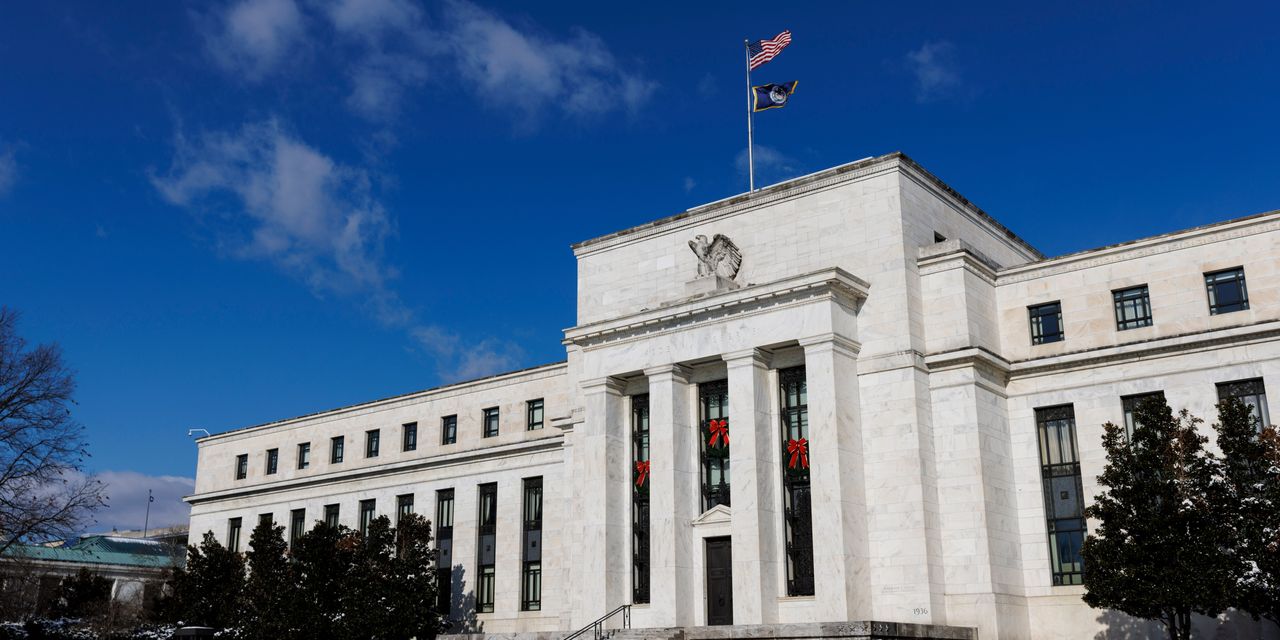
WASHINGTON—The Federal Reserve on Thursday launched a review of the potential benefits and risks of issuing a U.S. digital currency, as central banks around the world experiment with the potential new form of money to keep pace with private-sector payments innovations.
Fed officials have been divided on the matter, making it unlikely they will decide soon on whether to create a digital dollar. Unlike private cryptocurrencies like bitcoin, a Fed version would be issued by and backed by the U.S. central bank, a government entity, as are U.S. paper dollar bills and coins.
The central bank described Thursday’s long-awaited discussion paper as the first step in a debate of whether and how a U.S. digital dollar could improve the safe and effective domestic payments system. The paper doesn’t favor any policy outcome, and the Fed said the release of the report isn’t meant to signal any imminent decision.
“We look forward to engaging with the public, elected representatives, and a broad range of stakeholders as we examine the positives and negatives of a central bank digital currency in the United States,” Federal Reserve Chairman Jerome Powell said in a statement.
The Fed will collect comments on the report for 120 days. The Fed said it would move to adopt such an offering only with the support of the nation’s elected leaders.
Advocates say a Fed digital dollar could make it faster and cheaper to move money around the financial system, bring into it people who lack bank accounts and provide an efficient way for the government to distribute financial aid.
Another motivating consideration: keeping up with other major jurisdictions considering a digital currency for domestic and international payments, Fed governor Lael Brainard said in remarks before the National Association of Business Economics in September.
“It’s just very hard for me to imagine that the U.S., given the status of the dollar as a dominant currency in international payments, wouldn’t come to the table in that circumstance with a similar kind of an offering,” she said.
However, Mr. Powell has indicated he sees reason for caution. He said last year that it is more important to get the digital dollar right than to be first to market, in part because of the dollar’s critical global role.
He and other Fed officials have said the Fed’s research is early and exploratory. He said at a Sept. 22 press conference that they would only consider issuing a so-called central bank digital currency—or CBDC—if they believed there were “clear and tangible benefits that outweigh any costs and risks.”
Mr. Powell has pointed to other challenges, noting many Americans actively use and prefer cash. He also said there are privacy issues that would need to be addressed, since a Fed CBDC system would in theory allow the central bank to see what every user did with the currency.
Other officials have voiced more skepticism about the need for a Fed digital currency. Former governor Randal Quarles, who left the Fed last month, said last summer that the U.S. dollar is already “highly digitized” and expressed doubts that a Fed CBDC would help draw people without bank accounts into the financial system or lower financial transaction costs, a goal that can be accomplished through other means, he said.
A Philadelphia Fed report warned that a U.S. central bank CBDC could destabilize the financial system in a crisis if people pull their money out of banks, mutual funds, stocks and other investments and plow the funds into the Fed’s ultrasafe currency.
Some banks—facing the prospect of competition from the Fed for deposits—have already signaled they don’t believe the central bank has the legal authority to issue a digital currency without authorization from Congress.
In theory, a Fed digital dollar could be used alongside traditional paper money, but many of the details of how exactly people would access digital dollars, and how they would fit into the financial system, are unclear.
For instance, the Fed would have to decide whether consumers would access their digital dollars with accounts at the central bank or through existing commercial lenders.
Some advocates say CBDCs could help improve the effectiveness of monetary policy by allowing a central bank to change interest rates directly on accounts holding CBDCs. This could allow central banks to bypass often fickle financial markets and bring monetary policy right to the retail level.
The Fed paper comes as central banks around the world contend with the rise of numerous private electronic alternatives to traditional money and weigh creating their own versions. Private offerings of digital currencies have been extremely volatile, and in many cases have been associated with criminal activities. They also have so far failed to be adopted widely for daily transactions, such as for buying groceries or movie tickets.
China created its own government-issued digital currency earlier this year and recently prohibited transactions using cryptocurrencies issued by nonmonetary authorities, naming bitcoin, ether and tether as examples. El Salvador, meanwhile, became the first country in the world to adopt bitcoin as a national currency alongside the U.S. dollar.
The Biden administration is in the early stages of considering ways to impose bank-like regulation on the cryptocurrency companies that issue stablecoins—digital currencies pegged to national currencies like the U.S. dollar—which some officials fear could fuel financial panics and need to be more tightly regulated.
Mr. Powell said in congressional testimony earlier this month that a U.S. digital dollar could compete alongside privately issued stablecoins.
Write to Andrew Ackerman at [email protected]
Fed Weighs Digital Currency
Copyright ©2022 Dow Jones & Company, Inc. All Rights Reserved. 87990cbe856818d5eddac44c7b1cdeb8








